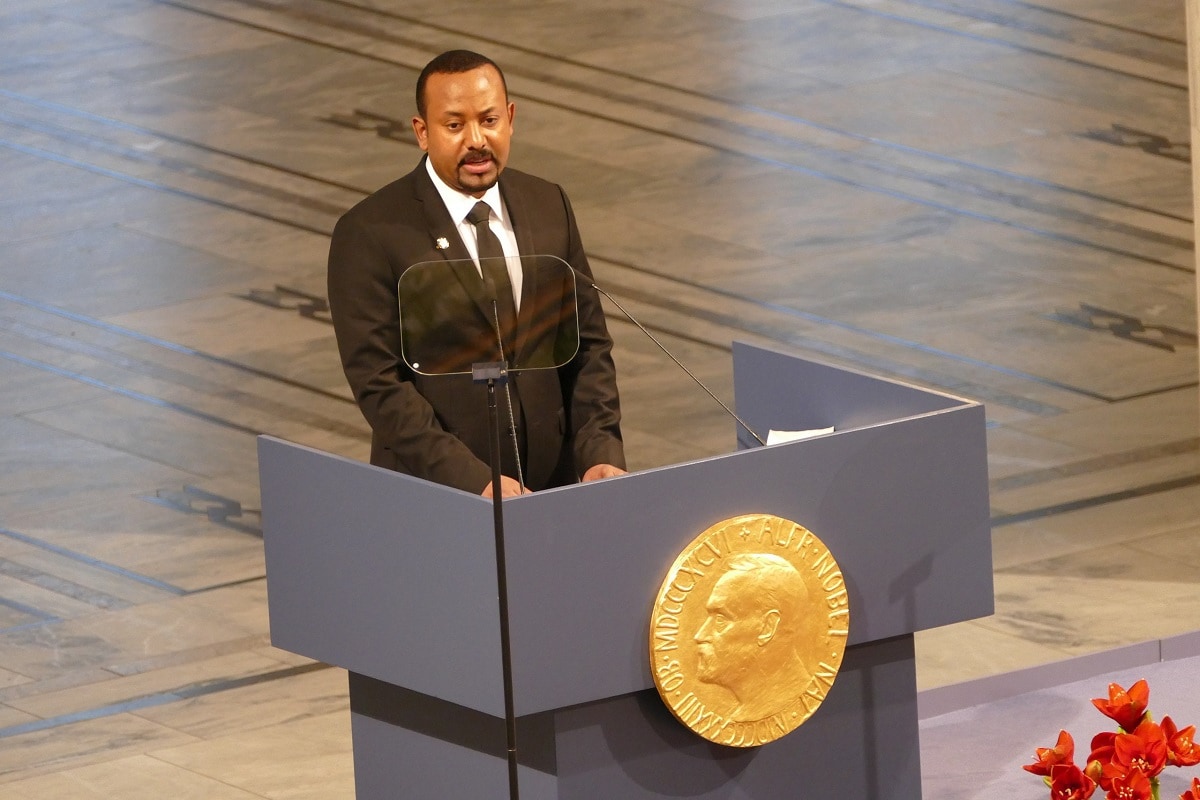Ethiopian and Tigrayan negotiators agreed yesterday to a truce in their two-year civil war after a marathon session in South Africa mediated by the African Union with U.S. support. “The two parties in the Ethiopian conflict have formally agreed to the cessation of hostilities as well as to systematic, orderly, smooth and coordinated disarmament,” former Nigerian President and African Union mediation head Olusegun Obasanjo said.
Is it Actually Peace?
Call me pessimistic. The war was unnecessary from the start, driven by Abiy Ahmed’s belief that he could bypass the democratic process with a quick military victory. When Tigrayan forces resisted, he laid siege with genocidal effect. Given a choice of modeling himself after South African President Nelson Mandela or Anti-Tutsi Genocide-era interim Rwanda President Théodore Sindikubwabo, Abiy chose the latter. Incitement is a cancer not easily excised; Ethiopia will pay the price for generations.
The greatest problem with the peace deal is that it ignores and may even empower Isaias Afwerki, Eritrea’s 76-year-old dictator. Eritrea was a combatant in the war and was responsible for some of its greatest atrocities. Because Eritrean forces saved Abiy’s skin, Afwerki believes that Abiy owes him and must defer to his interests.
That will be a disaster for both peace and regional stability. The problem for peace is that Abiy can feign compliance with the Pretoria agreement but outsource genocide against the Tigrayans to Eritrea. That Afwerki emerges as the top dog in the region bodes ill for broader stability. After Abiy, Afwerki is most responsible for fanning flames of instability and intolerance regionally. He was the brains behind the tripartite alliance between Eritrea, Ethiopia, and Mohamed Farmajo’s Somalia, as well as the forced impressment of thousands of Somalis into the Tigray fight.
If the United States and the broader international community wish to support peace in the Horn of Africa, it is time to address the Eritrea problem.
Fifteen years ago, the United States considered designating Eritrea as a state sponsor of terrorism. It was a mistake not to do so. Eritrean agents act far beyond their borders to promote terror and genocide. Recent actions in Tigray are only the latest case in point. The Biden administration might find bipartisan support in Congress for such a move.
Eritrea Presses Forward
Eritrea is also the only country to impose a “diaspora” tax on Eritreans based on ethnicity rather than citizenship. Eritrean embassies seek to extort this money by threatening the health and well-being of relatives back inside Ethiopia. The problem is so pernicious that even the United Nations Security Council condemned it.
The international community should also step up. While the United States and many European countries have acted admirably to help the Ukrainian people defend themselves, the juxtaposition between attention to the war in Ukraine and lack of sustained attention toward Ethiopian and Eritrean aggression against Tigray is troubling. There is no excuse why countries such as Italy, Germany, and the United Kingdom refrain from trade with Russia because of Ukraine but continue to trade with Eritrea whose crimes are equally egregious.
It is important that genocide not occur with impunity. Senior Ethiopian and Eritrean officials individually have the blood of tens of thousands of civilians on their hands. The State Department has already held some officials to account. It should continue to designate abusers with international Magnitsky Act sanctions, especially as true peace will enable access to Tigray. Accountability should not be one-sided. Should any members of the Tigray Defense Forces be responsible for human rights abuses, they should not be immune from the consequence of their actions.
Finally, the Biden administration should resist a desire by diplomats to restore Ethiopian trade privileges under the Africa Growth Opportunity Act (AGOA). Suspension of Ethiopia from AGOA cost Ethiopia privileged access to a nearly quarter-billion-dollar market segment. Rather than base action on the promise of peace, the White House should tie a return to Ethiopia maintaining its commitment to allow unhindered relief to Tigray. The danger now is that Abiy will play an elaborate game of good cop, bad cop with Afwerki, using Eritrean forces to attack and loot aid.
In short, the White House might welcome the Pretoria agreement, but it will only be the end of the beginning of the conflict rather than its end. Diplomats might hope for peace but, so long as they leave the Eritrea problem unaddressed, the actualization of such hope may remain outside the realm of reality.
Now a 1945 Contributing Editor, Dr. Michael Rubin is a Senior Fellow at the American Enterprise Institute (AEI). Dr. Rubin is the author, coauthor, and coeditor of several books exploring diplomacy, Iranian history, Arab culture, Kurdish studies, and Shi’ite politics, including “Seven Pillars: What Really Causes Instability in the Middle East?” (AEI Press, 2019); “Kurdistan Rising” (AEI Press, 2016); “Dancing with the Devil: The Perils of Engaging Rogue Regimes” (Encounter Books, 2014); and “Eternal Iran: Continuity and Chaos” (Palgrave, 2005).

